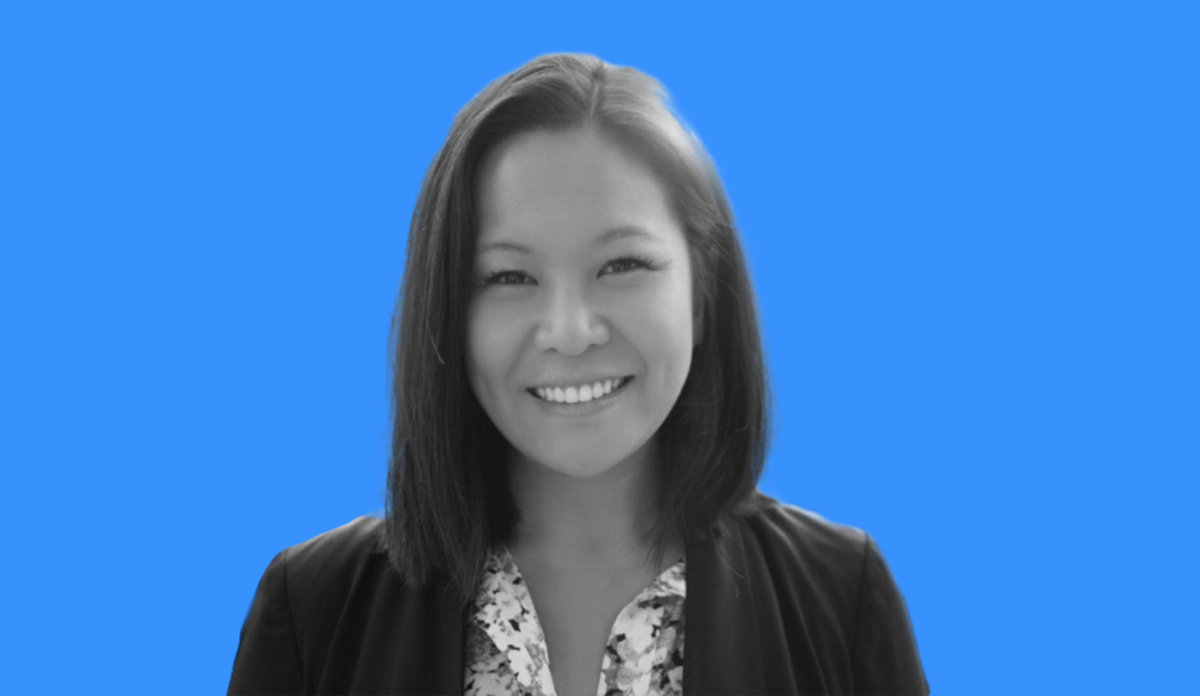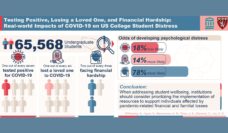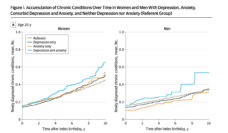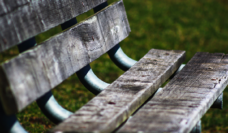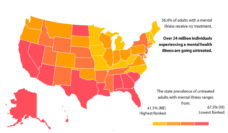Public Health Post: We’ve seen a rise in reported levels of anxiety and depression among college-aged students. What unique mental health stressors are these students experiencing?
Sasha Zhou: College is a significant time for both development and unique mental health stressors. For many students, college is their first time away from home, where they’re adapting to a new environment, academic stresses, competition, and financial concerns. This can be particularly challenging because the traditional age range of college students, between 18 and 25 years old, directly coincides with the typical age of onset for many mental illnesses. Many students will be experiencing symptoms for the first time while also going through this major transition period in their lives.
People often talk about the influence of social media and technology, which I see as a double-edged sword. Young people are much more comfortable talking about mental health than in the past and there are lots of opportunities to respond to mental health involving technology. However, there is research showing the correlation between social media use and poor mental health. This relationship is complicated by studies showing that social media represents so much of young peoples’ socialization and that disengaging them from their devices is isolating.
Today’s college students have also grown up facing truly unique environmental and political situations and this cannot be overlooked. Their formative years involved a major terrorist attack, recessions, costly wars, climate emergencies, and the mishandling of a pandemic, which collectively shaped their formative years and their perception of the world.
I also think a lot about the impact of academic competition. As a board member of the Association of Chinese Americans of Michigan, I interview high school seniors on their way to college. I’m so nervous for them because there is so much pressure for students to be accomplished across different dimensions and it is so common for them to tell me, “I built an app in middle school,” “I was a national champion of ice skating,” or “I started a nonprofit.” When I was in college, there wasn’t this pressure for students to work all the time and accomplish so much so early. I can’t imagine that by college these young people are not going to be burnt out.
Your research focuses on the mental health needs of underserved student populations. Can you share some insights regarding mental health disparities?
My research focuses on Asian American and Pacific Islander (AAPI) mental health, which has historically been an overlooked topic and population. There was a lot of stereotyping of AAPI students during the pandemic, but even pre-pandemic, they have been a high-risk group. These students underutilize psychological services and experience more negative attitudes toward seeking mental health services compared to their peers.
Asian American and Pacific Islander populations, however, are not a monolithic group, and treating them as such would be doing them a disservice. Interventions to help these various groups will look different and need to vary to address each group’s needs. For example, our research has found that although AAPI students tend to report the same level of depression and anxiety, Asian international students have the highest odds of suicide attempts across all racial and ethnic groups.
Among another subgroup, Asian American and Pacific Islander LGBTQ+ students, we found that just under 80% of students report one or more mental health problems. That means the vast majority are meeting clinically significant standards for depression, anxiety, eating disorders, non-suicidal self-injury, or suicidal ideation. It’s a grim situation.
Many colleges and universities are expanding their mental health services in response to increased demand. From your perspective and your work with the Healthy Minds Network, what are the most promising interventions to support students’ mental health?
We need to use data to regularly assess students’ mental health needs and invest in strategies with proven effectiveness. These strategies, which colleges should be implementing and building into their curricula, include skills training interventions, like mindfulness programs with supervised practice, and routine screenings for mental health concerns.
There is also growing evidence for programs focused on peer support groups. These programs foster a sense of belonging which can really help young people’s mental health and their academic success. Other ways to better foster a sense of belonging can be through mentorship and prioritizing physical spaces for support. One of my studies found a positive mental health impact for minoritized students who have a dedicated physical space like a multicultural center to gather, study, find older student mentors, and talk to faculty.
There are also things colleges should stop doing. We know some things just don’t work. For example, interventions where students are simply being provided mental health information without being combined with any skills training haven’t improved student mental health.
We’ve talked about interventions at the institutional level, but prevention and support can come from many other places. What do you think society should be doing to help and prepare students’ mental health before college?
We should incorporate content on mental health, mindfulness, stress management, and conflict resolution into our kids’ early schooling. My kids went to a preschool with a focus on social and emotional learning in their curriculum. Even as a mental health researcher, I was skeptical at first. Now I see just how important that was. Building the ability to stand up for yourself, engage in conflict resolution strategies, and have more mindfulness of your body and your emotions is critical.
On December 12, Zhou will speak at a Public Health Conversation hosted by Boston University School of Public Health about the challenges and opportunities surrounding college mental health. Register here.
This interview has been edited for length and clarity. Photo provided.









